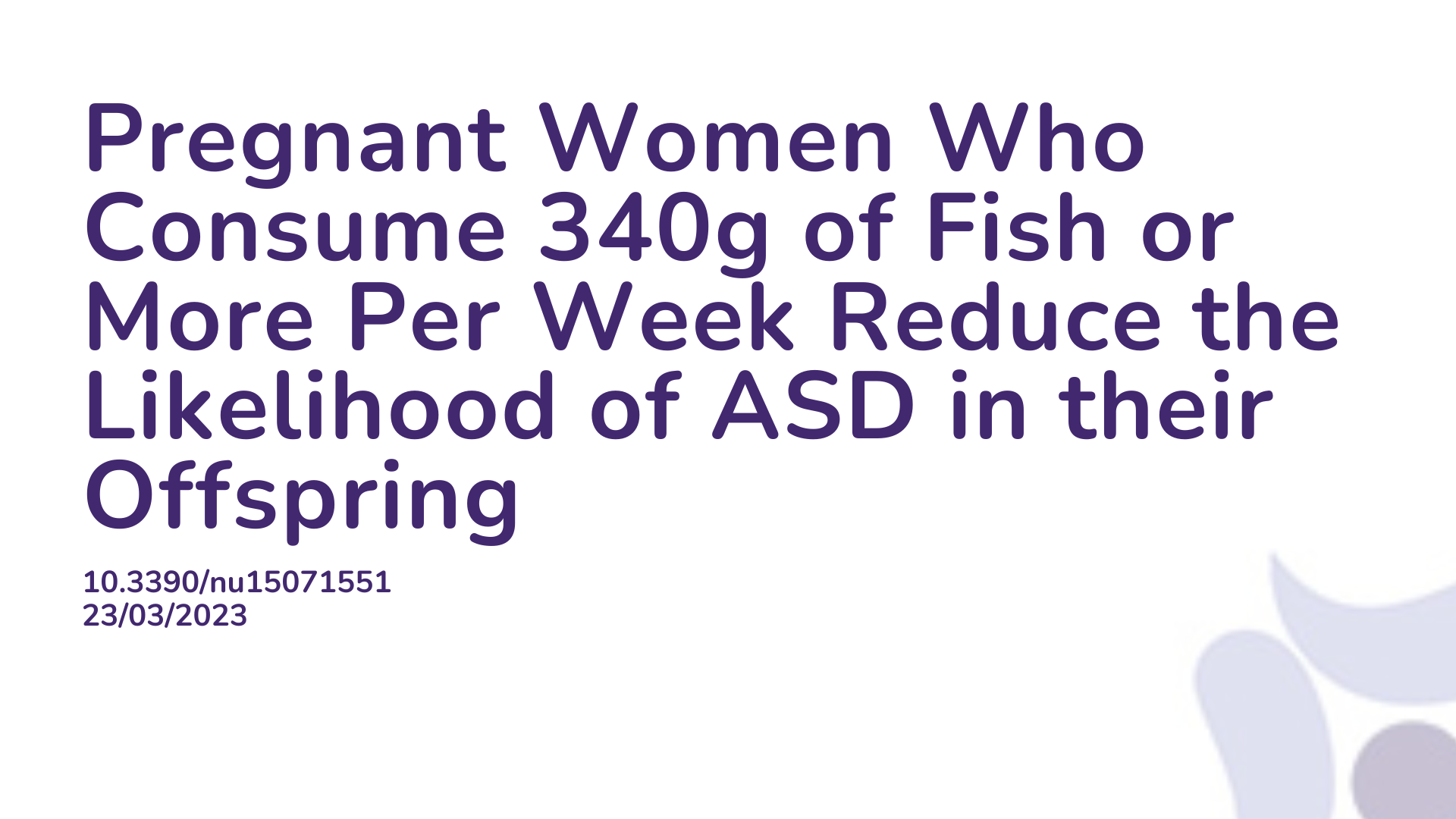Summary:
Autism spectrum disorder (ASD) is a neurodevelopmental condition characterised by social communication difficulties, repetitive behavior and sensory integration disorder, which can cause challenging behaviors. Whilst the cause is unknown, the lifestyle of the mother during pregnancy is a relevant factor for the risk of developing ASD. Physiology during pregnancy as well as the health of the offspring is influenced by multiple factors such as stress, medication use, whether a mother breastfeeds and diet. Furthermore, the way in which these factors influence the maternal gut microbiota is also crucial as a risk factor. This paper aims to outline the relationship between polyunsaturated fatty acids (PUFAs), the composition of maternal gut microbiota and the development of ASD in offspring as well as the impact of diet during pregnancy on neurological impairments. The authors have suggested that the consumption of polyunsaturated fatty acids (PUFAs) such as fish, mostly above 340g per week, has beneficial effects on infant neurodevelopment and that it is advised as a supplement during pregnancy. The authors also suggested that this may reduce the development of ASD.
Abstract:
Maternal food habits and gut microbiota composition have potential effects on fetal neurodevelopment, impacting Autism Spectrum Disorder (ASD). Our research aims to outline the relationship that ingestion of polyunsaturated fatty acids (PUFAs) and the composition of maternal gut microbiota have with the possible development of ASD in offspring. We suggest that genetic factors could be related to the different conversions between unsaturated fatty acids according to sex and, mainly, the impact of the pregnancy diet on the higher or lower risk of neurological impairments. The proportion of the phyla Firmicutes/Bacteroidetes is high with an increased consumption of linoleic acid (LA, n-6 PUFA), which is associated with maternal intestinal dysbiosis and consequently starts the inflammatory process, harming myelinization. In contrast, the consumption of α-linolenic acid (ALA, n-3 PUFA) tends to re-establish the balance of the maternal microbiota with anti-inflammatory action. Moreover, human observational studies showed a strong correlation between the consumption of n-3 PUFA, mainly above 340 g of fish per week, with beneficial effects on infant neurodevelopment. Therefore, we suggest that the proper intake of foods rich in n-3 PUFAs and their supplementation during pregnancy until lactation has an impact on reducing the development of ASD. Controlled studies with n-3 PUFA supplementation are still necessary to verify the ideal dose and the best form of administration.
Article Publication Date: 23/03/2023
DOI: 10.3390/nu15071551



